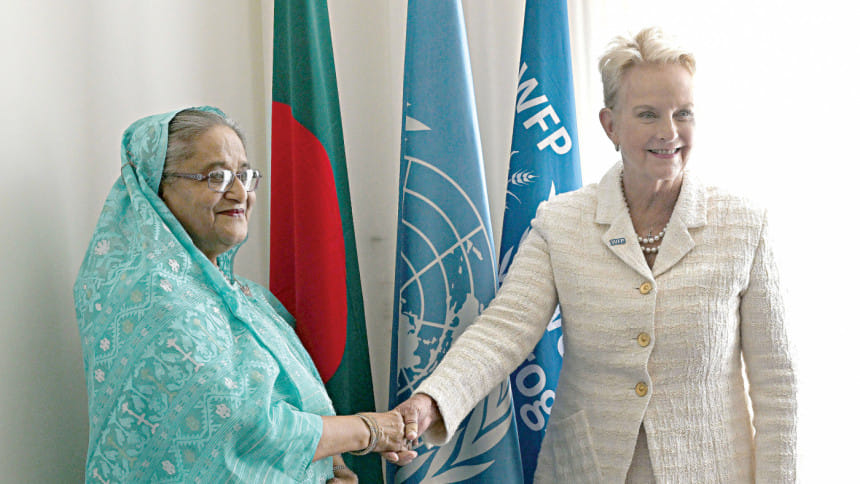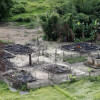UN talks seek to fix ‘broken’ global food system

A three-day United Nations summit yesterday opened in Rome aimed at tackling a "broken" global food system where millions are starving, two billion are overweight or obese and the planet is suffering.
The food systems summit comes amid growing food insecurity around the world, with UN agencies warning of an increasing number of people suffering from chronic hunger.
"In a world of plenty, it is outrageous that people continue to suffer and die from hunger," UN Secretary-General Antonio Guterres said at the opening of the meeting.
"Global food systems are broken -- and billions of people are paying the price."
More than 780 million people go hungry around the globe, even as nearly one-third of the world's food is wasted or lost, he said.
And while 462 million people are underweight, two billion are overweight or obese, he added.
The summit brings together representatives from the UN's three food agencies headquartered in Rome -- the Food and Agriculture Organization (FAO), the International Fund for Agricultural Development (IFAD) and the World Food Programme (WFP) -- alongside heads of states, government representatives and delegates.
Food systems include all activities related to producing, processing, transporting and consuming food, and making them more sustainable, efficient and equitable is a complex task.
Involving multiple sectors and actors, food systems are affected by varied trends such as urbanisation, climate change, technology and government policy.
Weather shocks, the Covid pandemic and conflicts including the war in Ukraine have helped push the number of people facing hunger up by 122 million since 2019, according to the WFP.
Between 691-783 million people faced hunger last year, with a mid-range of 735 million, WFP estimated in a report earlier this month.
Guterres reiterated his concern over Russia quitting the landmark grain deal that allowed cargo ships carrying Ukrainian grain to depart Black Sea ports.
"The most vulnerable will pay the highest price," of that move, he said, calling the previous agreement a "lifeline" for global food security.
The FAO has said that no less than a "radical transformation in how food is produced, processed, traded and consumed" is required to feed the world's growing population.
Guterres called for at least $500 billion per year to help needy countries scale up long-term financing to invest in higher performing food systems.
Doing nothing amounts to $12 trillion annually in social and economic costs, according to IFAD.
It compared the needed funds with the "$10 trillion in revenue generated by the global food industry or the $700 billion paid in agricultural subsidies by wealthy countries".
Unsustainable practices in food production, packaging and consumption are also fueling climate change, Guterres said, "generating one-third of all greenhouse gas emissions, using 70 percent of the world's freshwater, and driving biodiversity loss on an epic scale".
The conference comes two years after the UN's first-ever summit on food systems in 2021 and ahead of a summit on sustainable development goals in New York in September.
Over the three days, countries will review progress in meeting past commitments, while identifying bottlenecks to progress, IFAD said.
But more money is key, summit director Nadine Gbossa said.
"Without financing this transition, it's a death sentence for the planet," she told journalists last week, adding that the private sector also plays a major role.
"The public health cost of malnutrition is one of the highest in the world."

 For all latest news, follow The Daily Star's Google News channel.
For all latest news, follow The Daily Star's Google News channel. 









Comments